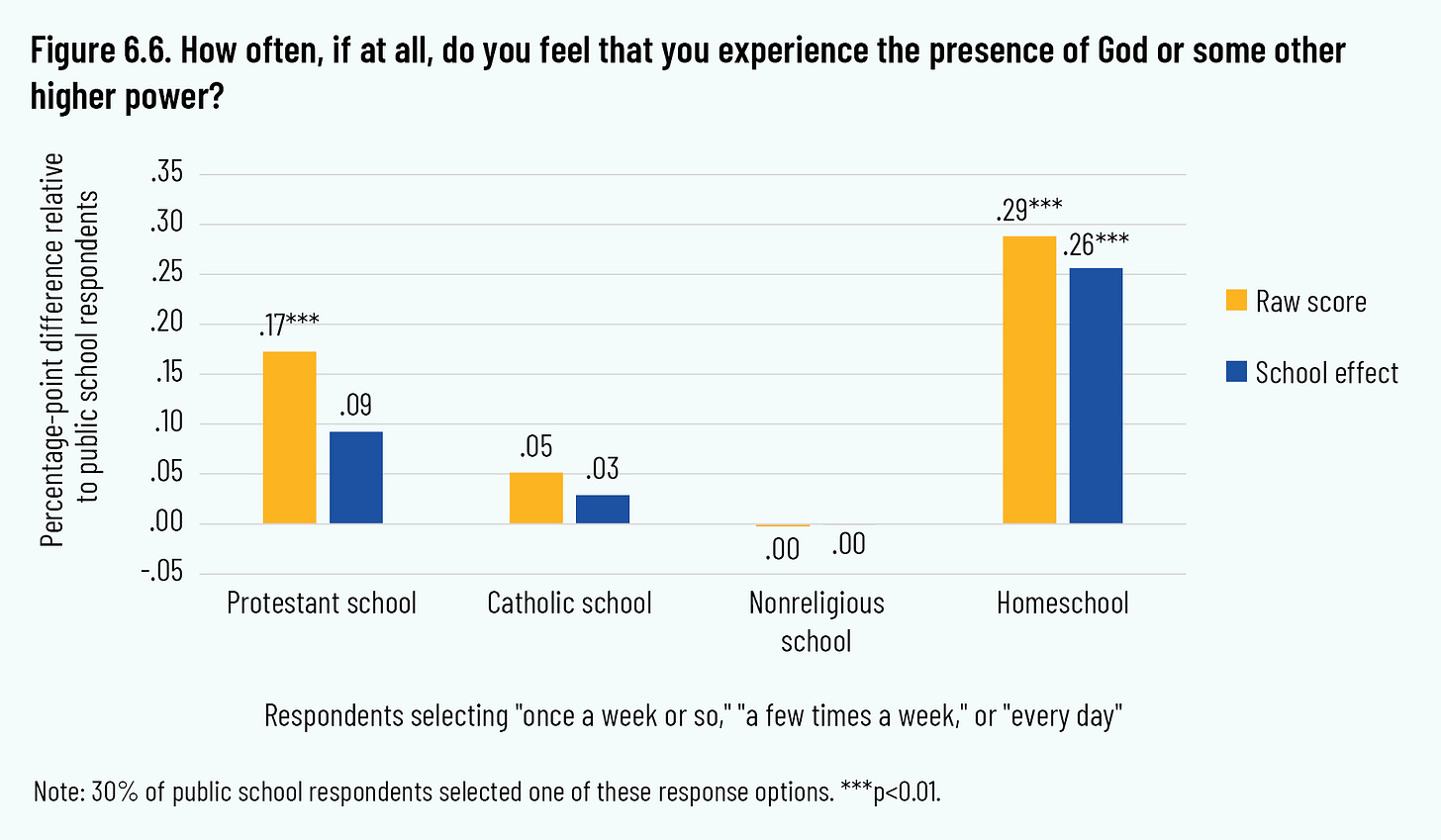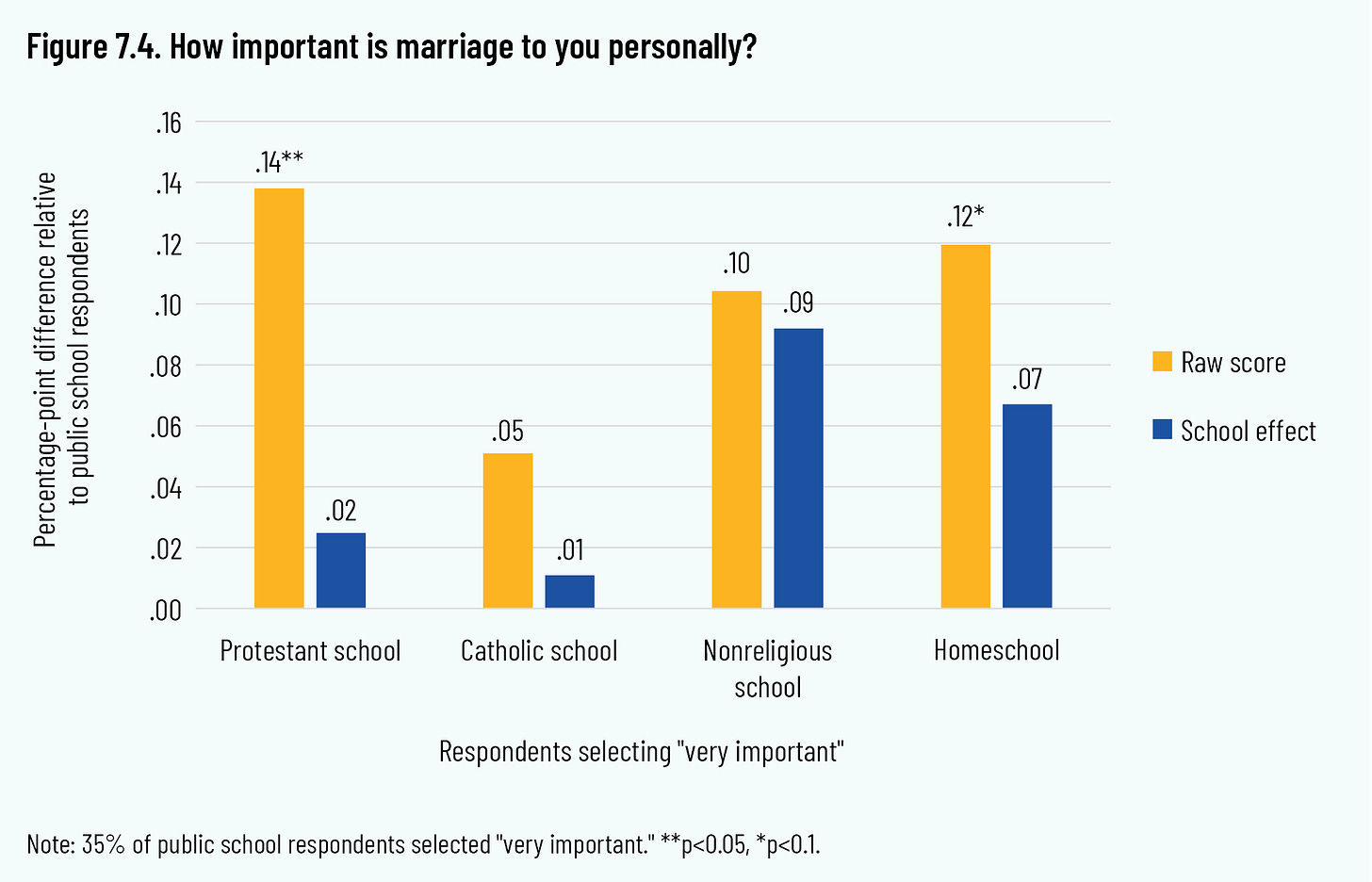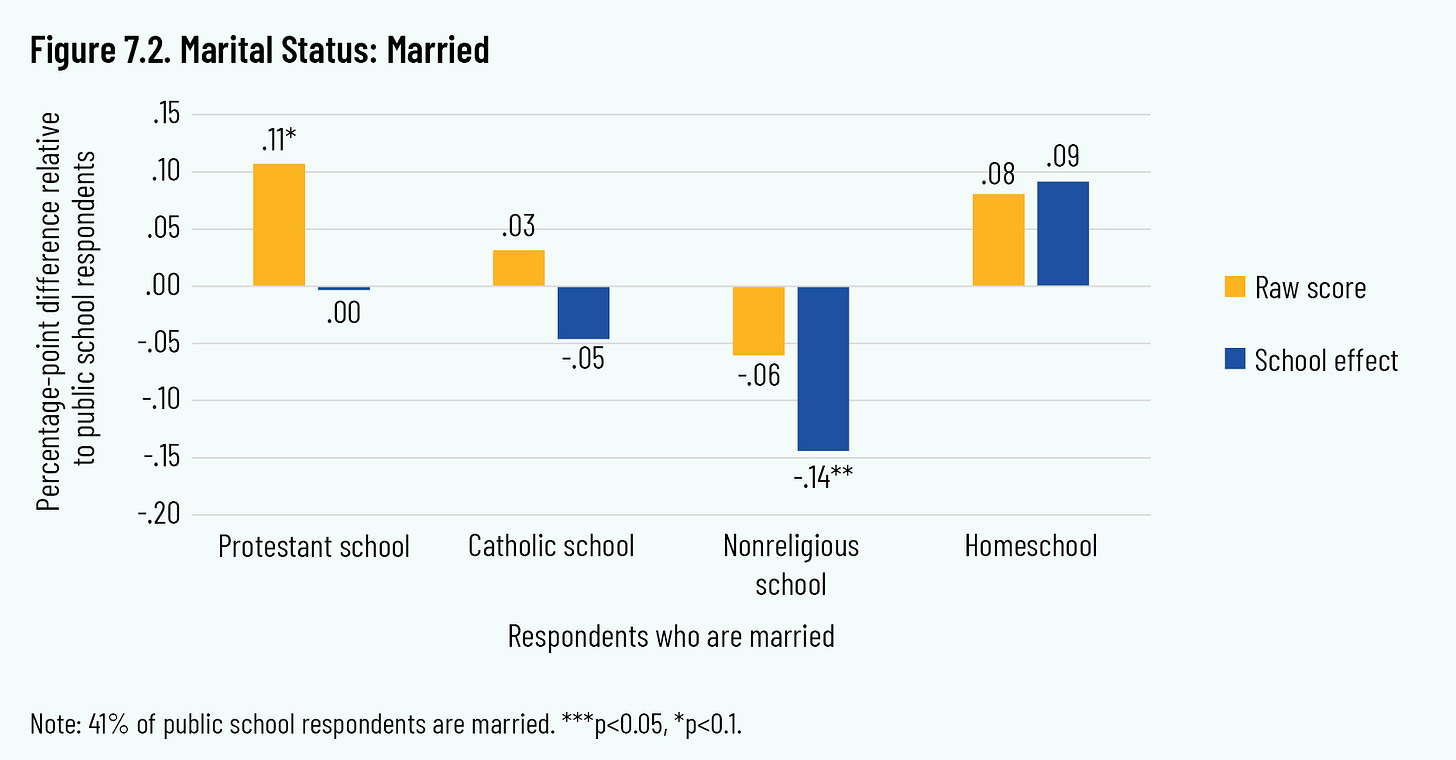Part 6 — Faith and Family Formation in Christian School Graduates
What the 2023 Cardus Education Survey reveals about the spiritual lives, convictions, and family values of Christian school graduates.
This post is the sixth in a seven-part series unpacking the 2023 Cardus Education Survey. If you’re just joining the series, here’s what we’ve covered:
Series Overview: Exploring the 2023 Cardus Education Survey
Part 1 — Introduction to the Study: What Difference Does Christian Education Make?
Part 2 — What Students Remember: The Christian High School Experience
Part 3 — Learning, Earning, and Serving: Long-Term Outcomes of Christian Education
Part 4 — Shaping Citizens: Civic Formation and Christian Education
→ Part 6 — Faith and Family Formation in Christian School Graduates (this post)
Part 7 — Reflections, Areas for Growth, and Next Steps
Christian education isn’t only about preparing students for college or careers—it’s about shaping followers of Christ who carry that formation into every corner of their lives. The 2023 Cardus Education Survey provides a powerful lens into how graduates of Protestant schools are shaped spiritually and how that influence carries into marriage, parenting, and long-term values.
Here are the seven most notable areas where Protestant school graduates stand out.
1. Belief in God or a Higher Power
While just 40% of public school graduates say they “definitely believe” in God, Protestant school graduates are 29 percentage points more likely to say yes. Even after adjusting for background factors, the gap remains a statistically significant 20 points.
2. Weekly Bible Reading
Only 18% of public school graduates report reading the Bible or sacred texts weekly. Protestant graduates are 24 points higher, and even with demographic controls, they remain 16 points more likely to maintain this habit.
3. Feeling God’s Presence Weekly
Do graduates experience God as real and present? Among Protestant school graduates, 39% say they feel God’s presence at least weekly, compared to 30% of public school graduates—a 9-point edge, though just shy of statistical significance.
4. Parents Teach Children About Faith
Protestant school graduates are more likely than any other group to affirm that parents should teach their children about religious beliefs.
5. Marriage as a Valued Institution
Only 35% of public school graduates say marriage is “very important” to them. Protestant school graduates are 14 percentage points more likely to agree.
6. Marriage Status: More Likely to Marry?
While not statistically significant, Protestant school graduates appear more likely to marry and less likely to remain unmarried than their public school peers.
7. Parenthood Rates
In one area, Protestant graduates don’t stand out: rates of having children. They are slightly less likely than public school graduates to report having children, though the difference isn’t statistically meaningful. That said, when paired with Figure 6.8, we see that Protestant graduates may have fewer children—but they do care more deeply about passing on their faith to them.
Final Thoughts on Faith and Family
The data tells a consistent story: Protestant school graduates are more likely to believe in God, engage spiritual disciplines, value marriage, and take seriously their role in raising the next generation in faith.
But it also reminds us: this doesn’t happen by default. It happens through parenting, peer influence, school culture, discipleship, biblical instruction, and adult role models who live what they teach. No doubt social media has a huge influence here on the “good life” that is being constantly presented to students, regardless of religious beliefs.
We may also want to ask, in a changing cultural and spiritual landscape:
Are we preparing students not just to inherit faith—but to own it and live it in a post-Christian world?
Do our graduates know how to engage a culture that often sees traditional family values and Christian beliefs as outdated or intolerant?
And even for those who retain faith, are we equipping them to lead their homes and churches with courage, humility, and conviction?
Coming next: Part 7 — Reflections, Areas for Growth, and Next Steps









